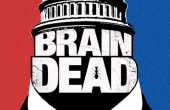Joseph Cernik
Editor, Missouri Policy Journal. Writer on Substack (American Eclectic).
Correspondent II
- Plebian Penman
- Common Writer
- Aristocratic Author
- Lurker
- Pssst
- Hand Raiser
- Vocal
- Outspoken
- Extrovert
- Center of Attention
- Forms a Crowd
- Sharp-Eyed Citizen
- Town Watch
- Detective Deskman
- Penman Patrol
- Motivational Columnist
- Actor
- Successful Pilot
- Well Read
- Article of the Month
- ?
- Articles
14 - Featured
14 - Comments
920
- Ext. Comments
380 - Processed
110 - Revisions
102
- Topics
29 - Topics Taken
1 - Notes
152
- Topics Proc.
33 - Topics Rev.
10
- Points
5789 - Rank
8 - Score
4701
Latest Articles
Latest Topics
Canned Laughter: A Critical AnalysisA British scientist explained the function of canned laughter used in TV shows as, “adding laughter to a joke, increases the humour value, no matter how funny or unfunny the joke is.” I Love Lucy (starring Lucille Ball, Desi Arnaz, William Farley), originally released in 1951, used canned laughter. The Honeymooners (starring Jackie Gleason, Art Carney, Audrey Meadows), which was originally released in 1955 also used canned laughter. |
Published | The Quiet Man and Domestic AbuseThe Quiet Man (1952, starring John Wayne, Maureen O’Hara, and Ward Bond) won the Academy Award for Best Director (John Ford) and Best Cinematography. The Library of Congress selected the movie in 2013 to be included in the United States National Film Registry. The basic theme is boy moves back to Ireland, boy meets girl, boy meets girl’s brother, boy fights girl’s brother and, in the end, everyone is happy and friends for life. It is an enjoyable movie that presents Ireland in a quaint way, although the film is filled with stereotypes of the Irish. The issue is that there are some uncomfortable moments throughout the film that raise the issue of domestic abuse and present it in ways that somehow they can be glossed over as simply entertaining and appropriate in their settings. At one point Wayne (Sean Thornton) pulls O’Hara (Mary Kate Danaher) off a train and drags her (as his wife) five miles to her brother’s farm, where Wayne throws her back at her brother and tells him to keep her. During the lead up to this scene, a woman in the crowd that has been following Wayne drag O’Hara from the train to the brother’s farm, anticipating the fight that will culminate in the film’s big scene, steps forward to give Thornton a tree branch and the woman says, “Here’s good stick.” The point is he can use it on his wife. Someone agreeing to write on this topic can address films, such as The Quiet Man, and how they may have glossed over domestic abuse and what changes have taken place since this film’s release in 1952. In addition, the impact of films and domestic abuse should be addressed. Did, for example, The Quiet Man, provide a way to rationalize domestic abuse which allowed it to be “swept under the rug” and be treated on a lesser level than other crimes? |
How Satisfied Are Viewers of TV Shows That Just Stop Without An Ending?Pitch (2016, one season) starring Kylie Bunbury and Mark-Paul Gosselaar. This series focused on the first female major league baseball player. A good series that just suddenly stopped. What happened after she was injured as she had the opportunity to pitch a no-hitter? The series just ends with no conclusion. Graves (2016-17, two seasons) starring Nick Nolte and Sela Ward. This series focused on a former two-term Republican President and how he wants to now correct some of the "wrongs" he was responsible for. Suddenly, the series ends with his arrest and we never find out if his wife, the former First Lady, is elected as a Senator. It is frustrating to see good, well developed, well acted series, just end. Are viewers satisfied with what they watched? Is there some way to complete these series, as well as others, to bring them to some conclusion in a one or two part episode? Maybe Netflix, Prime, or Hulu can take up the cause.
|
B-Movie Actors and Movies: Where do We Draw the Line?Defining a B movie is not necessarily easy to do. Generally, a B movie is considered a low-budget production. There have been certain movie studios that were associated with the production of B movies, Monogram and Republic Pictures among them. B movies might be training platforms for directors who subsequently moved to more well-known works (Edward Dmytryk) or actors who moved on (John Wayne, Humphrey Bogart). The term associated with more modern-day B movies is direct-to-video, which is an indication a film is not good enough for theatrical release. Direct-to-video has, in some ways, replaced films that were shown only at drive-in theaters in an earlier era. Bruce Campbell ("The Adventures of Brisco County Jr.," and "Evil Dead") wrote "If Chins Could Kill: Confessions of a B Actor." There is a site titled "bmovies," where one can get their fill of B movies (interestingly "Hillbilly Elergy" is listed along with "Sky Sharks"). One Internet site lists "The 100 1 Best ‘B Movies’ of All Time." Another site lists "1000 Cult B-Horror Movies." Where is the line between B actors, actresses, and movies and whatever is not in that category? "Plan 9 from Outer Space," "Attack of the Killer Tomatoes," or "Poultrygeist: Night of the Chicken Dead," might be easily considered as B movies and never in contention for an academy award, but how do we categorize these movies and who acts in them? Someone agreeing to write on this topic should address: 1) What characteristics distinguish B movies (and those acting in them) from whatever is on the other side; 2) What changes have taken place in B movies since there are movies as far back as the 1930s, and even earlier, that can be categorized as B movies, and 3) How might B movies be understood regarding their impact on both Hollywood and American culture.
|
Amos ‘n’ Andy: African-American Stereotypes and the Impact of the NAACP on Television"Amos ‘n’ Andy," began as a radio show in 1928. The show was set in Harlem, a section in New York City predominately African-American. The radio show was a spin-off from a minstrel act that involved two white actors in black face. Protests by African-American organizations against the show began in 1931. These protests were unsuccessful, and the show eventually became a television show beginning in 1951 (CBS) with the lead characters being black actors not white in black face. The National Association for the Advancement of Colored People (NAACP) began protesting the show and wanted it removed almost from when it first appeared on television. One of the main characters (the Kingfish) was portrayed as a con man, another was presented as a dim-witted cab driver. The language spoken by the characters was a gutter form of English meant to convey a stereotype of all African-Americans. CBS cancelled the show in 1953, but it lived on in syndication until 1966. There were episodes of the show produced that were not shown at the time CBS cancelled the show and those episodes lived on. American television was slow to eventually remove the show, in contrast with CBS sending reruns of the show to Kenya in 1963 where it was banned almost immediately. |
Mrs. America: Feminism Means WhatMrs. America (9 episodes on Hulu) has been praised for both the quality of the acting as well as the storyline. The series has addressed what can be described as focused on two different women’s movements: The movement that pushed for the Equal Rights Amendment (ERA) and the movement that fought against it, led by Phyllis Schlafly and which centered on what can be seen as a culture war.
|
The Crown and The Future King of the United KingdomThe Crown (Netflix) is in its fourth season. With the fourth season, more modern era events are addressed. The courtship between Charles and Diana (what there is of it) is addressed, as well as his inability to move on from Camilla (who now is his wife). At some point Charles will become the King of the United Kingdom, unless he decides to pass on it and, his son, William takes the crown. British tabloids have questioned whether Charles will, in fact, become King. How will the Netflix series play into the public perception of Charles? A poll that was conducted in 2018, said that only 36 percent of the British thought Charles was a positive force to benefit the monarchy. In 2014, a similar poll was conducted, and, at that time, 60 percent saw Charles as a positive force. Charles and Camilla married in 2005 so the 2014 poll was several years after they were married. The fourth season of The Crown does not make Charles look like anything but a person with emotional issues—not mental problems, just removed from showing a caring and emotional side. But, for the matter, each of the four children of Queen Elizabeth II do not come across well in the fourth season. Someone who decides to write on this topic should address how the British public comes to understand the monarchy through this series and whether the series can have some impact on how real-life figures are seen and judged. It may be too much to expect that the series can play into any decision regarding Charles or William becoming King, but a writer can speculate.
|
Do Culturally Sensitive Notices at the Beginning of Certain Movies Matter?In June 2020, HBO removed Gone With The Wind (1939) from its films available to be shown. A spokesman stated, “[The film was] a product of its time and depicts some of the ethnic and racial prejudices that have, unfortunately, been commonplace in American society." Two weeks after it was removed, HBO brought it back with two video clips that address the stereotypes of slaves depicted in the film and how the film downplays the horrors of slavery. On the Disney network, the movie, Mr. Magoo (1997) contains a statement, before the movie begins that partially states, “This program includes negative depictions and/or mistreatment of people or cultures.” Do these videos or statements matter and in what ways? The Birth of a Nation (1915), a silent film originally called The Clansman, depicts the Ku Klux Klan in heroic ways. The film is available for sale on Amazon but not found online easily if at all. Somewhere there seems to be a line that can and cannot be crossed. A warning label allows one film to be shown online but is not sufficient for another.
|
Latest Comments
| Top Gun: Combat on the Screen and the Reality of a High-Stakes Dogfight | |
I never understood why there had to be a part one and two. I saw a long-drawn-out movie that could have been reduced to one movie. Much of that I suspect comes from dialogue that just dragged on and could have been cut or eliminated. | Kill Bill's Enduring Impact — Two Decades of Echoing Retribution |
Interesting article. I’m not sure newspaper readership would necessarily increase but poems could add a different dimension to reading a newspaper. Furthermore, the types of poems would become an issue, Alan Ginsberg versus Henry Wadsworth Longfellow. | Should Modern Newspapers Publish Poetry? |
I suppose for years to come there will commentaries or analysis on 1984. Orwell just seems to be one of those writers who every few years sparks the imagination of all who read his book. It is interesting to read different perspectives on this book. You made some good points. | 1984: What Does it Tell us About The Purpose of Life? |
A good essay on what I thought after seeing it was a thoughtful movie. Not really a blockbuster, but a movie that did force you to think about life as it moves along. | Click: A Tragic Tale Exploring the Importance of Family |
A good essay. Usually, scenarios that try to think through how a nuclear weapon might be used, focus on a limited use of nuclear weapons. Movies tend to create the impression of everything going off at once, which, I think, creates the wrong impression of what could possibly happen. The case of Nagasaki and Hiroshima, these came in the Second World War several years after the United States entered the war. The firing bombings of Tokyo which killed 80,000–100,000 people were five months before Hiroshima was bombed. If the atomic bomb had been developed earlier would the United States have used it in, say, 1942. War, as in the case of the Second World War, escalated as the war proceeded. Nagasaki and Hiroshima I think create a wrong historical illustration for how a future nuclear weapon might be used. | Nuclear Nightmares in Film and Preventing Eventual Armageddon |
A good essay on a movie I thought was not particularly good. I guess Capitalism addressed in the movie is there, I thought it was about the character of a man. Capitalism, or a version of it, was the setting to portray a character. | Alienation in "There will be Blood" |
Thanks. I might need to write a follow-up essay with Trump back in the Presidential race (assuming he gets the Republican nomination). | The Donald Show: Trump, Television, and Manufactured Reality |








A good article. I liked the way you addressed fighter jets and related them to the movie. I preferred the second Top Gun to the first one.